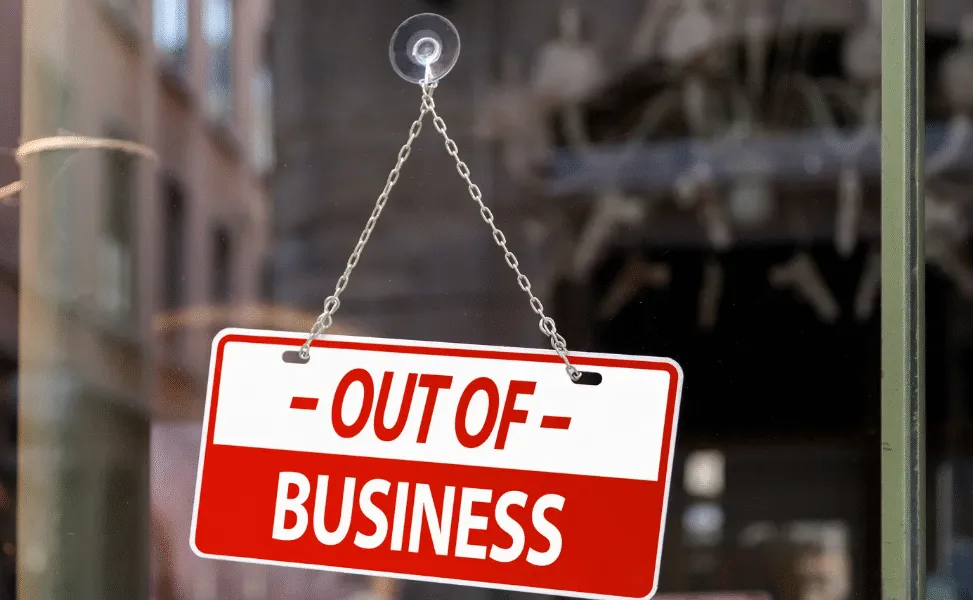Franchising is widely regarded as a safer path to business ownership due to its established brand and proven model. However, like any business, franchises are not immune to failure. Economic pressures, poor management, or market changes can result in a franchise closing its doors. But when a franchise goes out of business in the UK, the consequences depend on whether it’s the individual franchise unit or the entire franchisor that has failed. Understanding the potential outcomes can help both franchisees and franchisors prepare for such situations and limit long-term damage.
When a Franchisee’s Business Fails
If an individual franchisee’s business fails, this generally means that a single franchise location is no longer financially viable. In most cases, this is treated as the failure of an independent small business, even though it is operating under a larger brand. The franchise agreement signed at the outset will outline the terms under which the franchisee may exit or be terminated. Typically, if the franchisee declares insolvency or enters liquidation, the franchisor may have the right to take back control of the territory or resell the franchise to a new operator.
In such cases, the franchisee is liable for any outstanding debts associated with the business, including those owed to suppliers, landlords, and staff. However, these liabilities are usually ringfenced to the franchisee’s business entity—often a limited company—unless personal guarantees were provided. The franchisor might offer guidance or transitional support, but their responsibility to step in is limited unless otherwise agreed.
When the Franchisor Goes Out of Business
The situation becomes more complicated if the franchisor—the owner of the overall brand and business system—goes out of business. This could happen due to financial difficulties, legal troubles, or the retirement or exit of the founder without a succession plan. In this case, the central support system for franchisees disappears. That includes national marketing, supply chains, training, and use of the brand. Franchisees may find themselves unable to legally continue trading under the brand name, especially if the brand’s trademarks are sold off or dissolved during the franchisor’s liquidation process.
For franchisees, this is a particularly vulnerable position. They may have invested substantial capital into a business that is now disconnected from its support network. In some situations, a new buyer might acquire the franchisor’s assets and continue operations, providing existing franchisees with a way forward. In other cases, the franchisees may be left with no option but to cease trading or rebrand and operate independently, provided that the franchise agreement allows such a transition.
Legal and Financial Implications
In the UK, when a business becomes insolvent, administrators or liquidators are appointed to manage the company’s assets and liabilities. For franchisees, the legal structure of their agreement will dictate what happens next. Many franchise agreements include clauses that allow termination if the franchisor becomes insolvent. Franchisees may also lose access to proprietary software, marketing materials, trademarks, and other intellectual property.
Financially, franchisees might be left with sunk costs, including initial franchise fees, build-out expenses, and ongoing loans. Insurance might cover certain losses, but often, franchisees will need to seek legal advice to explore their rights and any possible compensation claims. If the franchise brand is taken over by another company, the new owners may offer new agreements to existing franchisees, but this is not guaranteed and could come with different terms.
Mitigating the Risks
The best way to protect against this scenario is by thoroughly researching the franchisor before signing an agreement. This includes reviewing their financial health, franchise history, and their affiliations with organisations like the British Franchise Association. Franchisees should also review their contracts carefully, especially clauses related to termination, insolvency, and rights to continue trading.
Having a business continuity plan in place, maintaining a strong local customer base, and being adaptable can also help franchisees navigate the fallout if a franchisor collapses. Legal advice and industry support groups can be critical resources during uncertain times.
Summary
While franchising is often seen as a lower-risk business model, it’s important to remember that franchise businesses can and do fail in the UK. Whether it’s an individual unit or the franchisor that goes under, the consequences can be significant. Understanding the legal, operational, and financial impacts of such an event is essential for both current and prospective franchisees. With careful planning, due diligence, and the right legal protections, business owners can better prepare themselves for the unlikely event of a franchise failure and respond with resilience.

